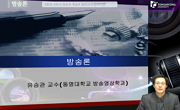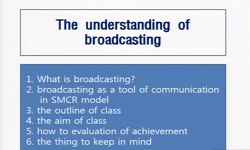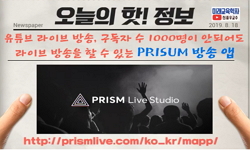본 연구는 북한이탈주민에 대한 인식에 영향을 미칠 수 있는 언론의 보도 특히 북한이탈주민을 지칭하는 보도 용어에 초점을 맞춰 언론이 북한이탈주민을 어떠한 용어로 어떠한 시각에서 ...
http://chineseinput.net/에서 pinyin(병음)방식으로 중국어를 변환할 수 있습니다.
변환된 중국어를 복사하여 사용하시면 됩니다.
- 中文 을 입력하시려면 zhongwen을 입력하시고 space를누르시면됩니다.
- 北京 을 입력하시려면 beijing을 입력하시고 space를 누르시면 됩니다.

언론 보도의 ‘북한이탈주민’ 지칭어가 수용자의 언어에 미치는 영향 = The Influence of Media Reports of the Term ‘North Korean Defectors’ on Audience's Language
한글로보기https://www.riss.kr/link?id=A107176546
- 저자
- 발행기관
- 학술지명
- 권호사항
-
발행연도
2020
-
작성언어
-
-
주제어
언론 보도 ; 방송 ; 북한이탈주민 ; 미디어 언어 ; 수용자 언어 ; 그랜저 인과관계 ; North Korean defectors ; news reports ; media language ; audience language ; broadcaster ; Granger causality test
-
등재정보
KCI등재
-
자료형태
학술저널
- 발행기관 URL
-
수록면
5-41(37쪽)
-
KCI 피인용횟수
0
- 제공처
-
0
상세조회 -
0
다운로드
부가정보
국문 초록 (Abstract)
본 연구는 북한이탈주민에 대한 인식에 영향을 미칠 수 있는 언론의 보도 특히 북한이탈주민을 지칭하는 보도 용어에 초점을 맞춰 언론이 북한이탈주민을 어떠한 용어로 어떠한 시각에서 재현하고 있는지 그리고 이러한 보도 용어가 수용자의 언어에 어떠한 영향을 미치고 있는지를 검증하고자 했다. 이를 위해 1990년부터 2018년까지 29년동안 KBS 뉴스와 Daum 뉴스에서 사용된 ‘탈북자’, ‘새터민’, ‘귀순자’, ‘북한이탈주민’, ‘탈북민’ 용어의 사용 기간 및 빈도 추이에 대한 분석과 함께 이들 용어가 Daum 블로그와 Daum 카페에서 이용자들이 게시글과 댓글을 주고받는 과정에서 사용하는 수용자의 언어와 유의미한 관계가 있는지를 살펴보고자 했다. 연구 결과, KBS 뉴스의 ‘탈북자’ 용어 사용이 Daum 블로그의 ‘탈북자’ 용어 사용과 Daum 카페의 ‘탈북자’ 용어사용을 선도하는 그랜저 인과관계가 존재하는 것으로 분석됐다. 또 KBS 뉴스의 ‘새터민’ 용어 사용과 ‘북한이탈주민’ 용어 사용이 각각 Daum 뉴스의 ‘새터민’ 용어 사용과 ‘북한이탈주민’ 용어를 선도하는 그랜저 인과관계가 있는 것으로 나타났다. 아울러 ‘탈북민’ 용어의 사용 빈도가 2010년대 이후 Daum 카페는 물론 Daum 블로그와 Daum 뉴스에서도 가파른 증가세를 보인다는 점에서 KBS를 비롯한 언론에서도 북한이탈주민을 지칭하는 바람직한 공식 용어 혹은 보도 용어로 ‘탈북민’이라는 용어를 사용하는 것에 대한 타당성과 적절성을 검토해볼 필요가 있다.
다국어 초록 (Multilingual Abstract)
This study focuses on media reports that may affect North Korean defectors' perceptions, especially the terms that refer to North Korean defectors, and how the media reproduces North Korean defectors. We tried to verify how the terms in the media repo...
This study focuses on media reports that may affect North Korean defectors' perceptions, especially the terms that refer to North Korean defectors, and how the media reproduces North Korean defectors. We tried to verify how the terms in the media reports affect the language system of the audience in Korea. To this end, we analyzed the period of use and frequency of North Korean defector terminology used in KBS news and Daum news for 29 years from 1990 to 2018. We also looked at whether these terms had a significant relationship with the language that Internet users used to send and receive posts and comments on Daum blogs and Daum cafes. As a result, KBS's use of the term ‘talbukja’ has a causal relationship leading to the use of the term ‘talbukja’ in the Daum blogs and Daum Cafes. KBS's use of the term ‘sateomin' has a causal relationship with Daum's use of the term 'sateomin'. In addition, the frequency of the use of the term‘talbukmin’ has been showing a sharp increase in Daum cafes, Daum blogs and Daum news since 2010. In this respect, it is necessary to examine the feasibility and adequacy of the use of the term ‘talbukmin’ as the preferred official or press term for North Korean defectors in the media including KBS.
참고문헌 (Reference)
1 임규홍, "한국 신문의 외래어 지면 이름에 대한 언어학적 분석 『주요 일간지를 중심으로』" 한국사회언어학회 11 (11): 193-214, 2003
2 태지호, "텔레비전 토크쇼 <이제 만나러 갑니다>(채널 A)의 탈북 여성들의 사적 기억 재구성 방식과 그 의미에 대하여" 한국언론정보학회 60 (60): 104-124, 2012
3 최진봉, "텔레비전 뉴스 콘텐츠에 나타난 탈북민의 이미지 분석" 한국콘텐츠학회 16 (16): 403-414, 2016
4 오원환, "탈북자 정체성의 정치학 :종편에서의 ‘탈북미녀’의 등장과 ‘탈북자’ 정체성의변화를 중심으로" 한국방송학회 30 (30): 5-41, 2016
5 이선민, "탈북 여성은 어떻게 말할 수 있는가?: 텔레비전 토크쇼 <이제 만나러 갑니다>(채널 A)에 대한 비판적 분석을 중심으로" 한국여성커뮤니케이션학회 29 (29): 75-115, 2014
6 이주행, "신문의 언어 사용 실태와 개선 방안에 대한 연구" 국어교육학회 (16) : 2003
7 최유숙, "신문기사에 나타난 북한이탈주민 지칭어 분석—지칭어와 관련어의 공기어를 중심으로—" 중앙어문학회 67 : 33-66, 2016
8 이정복, "사회언어학으로 인터넷 통신 언어 분석하기: 최근의 연구 현황과 과제" 한국어학회 (27) : 37-79, 2005
9 유호열, "북한이탈주민에 대한 언론의 보도 태도" 남북하나재단 2011
10 장영은, "북한과 탈북자를 재현하는 텔레비전에 대한 수용자의 시선: <이제 만나러 갑니다>에 대한 수용자 해독을 중심으로" 한국소통학회 (27) : 225-254, 2015
1 임규홍, "한국 신문의 외래어 지면 이름에 대한 언어학적 분석 『주요 일간지를 중심으로』" 한국사회언어학회 11 (11): 193-214, 2003
2 태지호, "텔레비전 토크쇼 <이제 만나러 갑니다>(채널 A)의 탈북 여성들의 사적 기억 재구성 방식과 그 의미에 대하여" 한국언론정보학회 60 (60): 104-124, 2012
3 최진봉, "텔레비전 뉴스 콘텐츠에 나타난 탈북민의 이미지 분석" 한국콘텐츠학회 16 (16): 403-414, 2016
4 오원환, "탈북자 정체성의 정치학 :종편에서의 ‘탈북미녀’의 등장과 ‘탈북자’ 정체성의변화를 중심으로" 한국방송학회 30 (30): 5-41, 2016
5 이선민, "탈북 여성은 어떻게 말할 수 있는가?: 텔레비전 토크쇼 <이제 만나러 갑니다>(채널 A)에 대한 비판적 분석을 중심으로" 한국여성커뮤니케이션학회 29 (29): 75-115, 2014
6 이주행, "신문의 언어 사용 실태와 개선 방안에 대한 연구" 국어교육학회 (16) : 2003
7 최유숙, "신문기사에 나타난 북한이탈주민 지칭어 분석—지칭어와 관련어의 공기어를 중심으로—" 중앙어문학회 67 : 33-66, 2016
8 이정복, "사회언어학으로 인터넷 통신 언어 분석하기: 최근의 연구 현황과 과제" 한국어학회 (27) : 37-79, 2005
9 유호열, "북한이탈주민에 대한 언론의 보도 태도" 남북하나재단 2011
10 장영은, "북한과 탈북자를 재현하는 텔레비전에 대한 수용자의 시선: <이제 만나러 갑니다>에 대한 수용자 해독을 중심으로" 한국소통학회 (27) : 225-254, 2015
11 김일환, "북한 스케치: 2000년대 신문 빅 데이터에 표상된 북한의 모습" 심연북한연구소 20 (20): 7-37, 2017
12 강민경, "문화적 양극화, 탈북자 토크쇼, 정체성 혼란 -<이제 만나러 갑니다>와 <모란봉 클럽>에 대한 담화 및 담론 분석-" 한국콘텐츠학회 17 (17): 567-584, 2017
13 이건호, "디지털 시대 의제 설정 효과로서의 점화 이론 : 인터넷 매체가 수용자의 인식과 가치 판단 설정에 미치는 영향 연구" 한국언론학회 50 (50): 367-392, 2006
14 신미녀, "남한 주민과 북한이탈주민의 상호인식–한국 사회 정착에서 제기되는 문제를 중심으로" 5 : 119-143, 2009
15 곽정래, "김대중ㆍ노무현 정부시기 탈북자 문제에 관한언론의 프레임 유형 연구 : 「조선일보」ㆍ「한겨레」 등 5대 일간지 사설을 중심으로" 한국언론학회 53 (53): 196-217, 2009
16 임종섭, "근거이론방법의 고찰과 언론학 연구에 주는 함의: 보수신문과 진보신문의 탈북자 기획기사 분석을 중심으로" 한국언론학회 59 (59): 427-452, 2015
17 김일환, "공기 관계 네트워크를 이용한 감정명사의 사용 양상 분석" 한국어학회 49 : 119-148, 2010
18 최윤형, "“대한민국은 우릴 받아줬지만, 한국인들은 탈북자를 받아준 적이 없어요.” 댓글에 나타난 남한사람들의 탈북자에 대한 인식과 공공 PR의 과제" 한국광고홍보학회 15 (15): 187-219, 2013
19 Kim, S., "Think about it this way : Attribute agenda-setting function of the press and the public's evaluation of a local issue" 79 (79): 7-25, 2002
20 McCombs, M., "The agenda-setting funtion of mass media" 36 (36): 176-187, 1972
21 Mendelsohn, M., "The Media and interpersonal communications : The priming of issues, leaders, and party identification" 58 (58): 112-125, 1996
22 McCombs, M., "Setting the Agenda of Attributes in the 1996 Spanish General Election" 50 : 77-92, 2000
23 Golan, G., "Second-level agenda setting in the New Hampshire primary : A comparison of coverage in three newspaper and public perceptions of candidates" 78 (78): 247-259, 2001
24 Iyengar, S., "News coverage of the Gulf and public opinion : A study of agenda-setting, priming, and framing" 20 (20): 365-383, 1993
25 Iyengar, S., "News That Matters : Television and American Opinion" University of Chicago Press 1987
26 Tuchman, G., "Making News : A Study in the Construction of Reality" The Free Press 1978
27 Granger, C. W. J., "Investigating causal relations by econometric models and cross-spectral methods" 37 : 42-438, 1969
28 Reuveny, R., "International Trade, Political Conflict/Cooperation and Granger Causality" 40 (40): 943-970, 1996
29 Huckins, K., "Interest-group influence on the media agenda : A case study" 76 (76): 76-86, 1999
30 Khan, U., "Information flow between prediction markets, polls and media : Evidence from the 2008 presidential primaries" 34 : 696-710, 2018
31 Wanta, W., "How the president's state of the union talk influenced news media agenda" 66 : 537-541, 1989
32 Freeman, J, "Granger Causality and Time Series Analysis of Political Relationships" 27 : 326-358, 1983
33 Pan, Z., "Framing analysis: An approach to news discourse" 19 (19): 55-75, 1993
34 Iyengar, S., "Experimental Demonstrations of the"not so-minimal"consequences of television news programs" 76 : 848-858, 1982
35 Severin, W. J., "Communication Theories: Origins, Methods and Uses in Mass Communication" Addison-Wesley Publishing 2001
36 Pierce, David A., "Causality in temporal systems : Characterizations and a survey" 5 : 265-293, 1977
37 Krosnick, J., "Altering the foundations of support for the president through priming" 85 : 497-512, 1990
38 Scheufele, D. A., "Agenda-setting, priming, and framing revisited : Another look at cognitive effects of political communication" 69 : 902-920, 2000
39 Roberts, M., "Agenda setting and issue salience online" 29 (29): 452-465, 2002
40 남북하나재단, "2018 북한이탈주민 정착실태조사" 남북하나재단 2018
동일학술지(권/호) 다른 논문
-
방송언어 관련 방심위 심의 제재 현황 분석 :10년간(2009년~2018년) 심의 의결 내용분석을 중심으로
- 한국지역언론학회
- 최현주 ( Choi Hyunju )
- 2020
- KCI등재
-
방송언어 관련 방심위 심의 제재 현황 분석 :10년간(209년~2018년) 심의 의결 내용분석을 중심으로
- 한국지역언론학회
- 최현주
- 2020
- KCI등재
분석정보
인용정보 인용지수 설명보기
학술지 이력
| 연월일 | 이력구분 | 이력상세 | 등재구분 |
|---|---|---|---|
| 2026 | 평가예정 | 재인증평가 신청대상 (재인증) | |
| 2020-01-01 | 평가 | 등재학술지 유지 (재인증) |  |
| 2017-01-01 | 평가 | 등재학술지 유지 (계속평가) |  |
| 2013-01-01 | 평가 | 등재학술지 유지 (등재유지) |  |
| 2010-01-01 | 평가 | 등재학술지 유지 (등재유지) |  |
| 2007-01-01 | 평가 | 등재학술지 선정 (등재후보2차) |  |
| 2006-03-21 | 학회명변경 | 한글명 : 한국지역언론학연합회 -> 한국지역언론학회 |  |
| 2006-01-01 | 평가 | 등재후보 1차 PASS (등재후보1차) |  |
| 2004-01-01 | 평가 | 등재후보학술지 선정 (신규평가) |  |
학술지 인용정보
| 기준연도 | WOS-KCI 통합IF(2년) | KCIF(2년) | KCIF(3년) |
|---|---|---|---|
| 2016 | 1.27 | 1.27 | 1.55 |
| KCIF(4년) | KCIF(5년) | 중심성지수(3년) | 즉시성지수 |
| 1.62 | 1.59 | 2.189 | 0.47 |





 KISS
KISS






